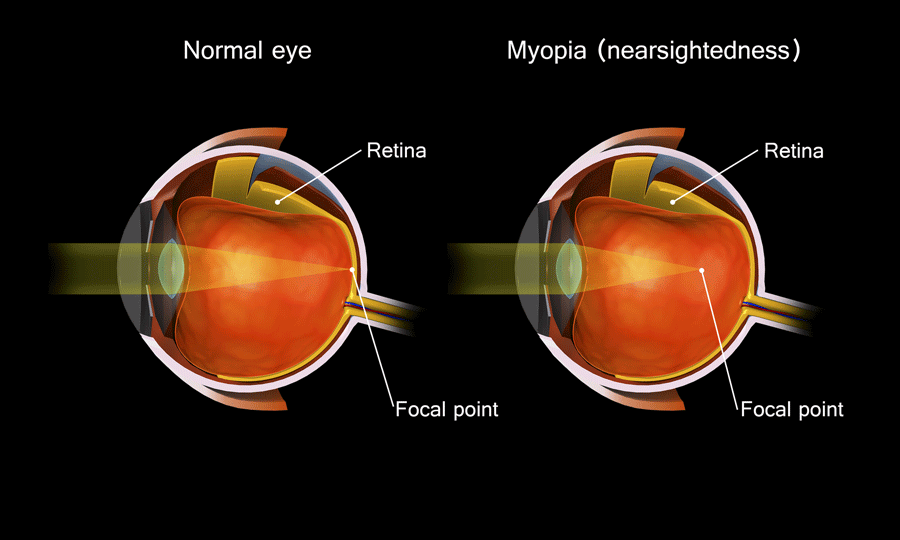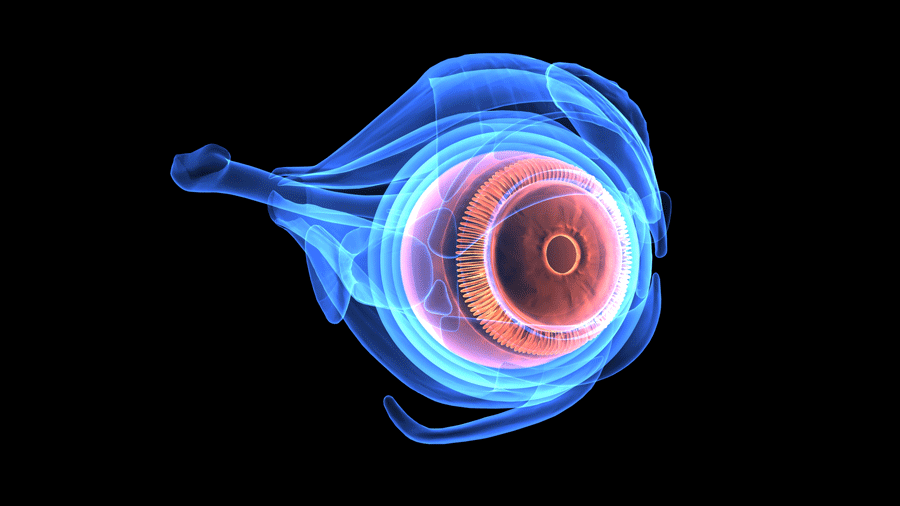Other Eye Conditions We Treat
Myopia
What Is Myopia?
If you experience headaches or eyestrain or feel as if you are squinting to see things at a distance, you may have myopia or nearsightedness. The myopic eye is longer than normal. Incoming light focuses in front of, instead of directly on the retina. This causes objects far away to be blurry, while objects up close appear clear.
Myopia can be corrected with prescription glasses, contact lenses, or refractive surgery. Depending upon your vision problem, you may or may not have to always wear corrective lenses. If you continue to have headaches or eye strain while wearing your glasses or contacts, you may need a new prescription.

Hyperopia
What Is Hyperopia?
The symptoms of hyperopia, or farsightedness, are similar in comparison to myopia. The hyperopic eye is shorter than normal. Those who are hyperopic have difficulty seeing objects up close. Hyperopia is caused when light enters the eye and focuses behind the retina.
Hyperopia can be treated the same as myopia, with corrective lenses, or refractive surgery. As with myopia, your corrective lenses may or may not need to be always worn.
Astigmatism
What Is Astigmatism?
Astigmatism is caused by an irregular shaped cornea or sometimes an irregularly shaped lens. It occurs when the cornea is shaped like an oblong football rather than a round baseball. It is often accompanied by nearsightedness or farsightedness. Astigmatism causes light to focus on two points in the back of the eye instead of one. It can cause headaches and eye strain. It can usually be corrected with eyeglasses or contact lenses.
Presbyopia
Presbyopia is directly caused by the aging process. It is not related to the shape of the eye or genetic factors. It is believed to be caused by the loss of flexibility in the lens of the eye. When the eye has less flexibility, it becomes difficult to focus up close. Eyeglasses are prescribed with a bifocal lens to correct presbyopia. The bifocal gives you two points of focus. The top portion of the glasses contains the correction for nearsightedness or farsightedness, while the lower portion holds the stronger near-vision correction for close work. Reading glasses also are an option. They can be worn while only doing close work. Advanced multifocal contact lenses also are options for correcting near vision in many patients. When a patient has cataract surgery there are advanced technology lens implants available which can be used to reduce reliance on reading glasses or specialty contact lenses.

Call our office at (601) 981-1550 for more information about macular degeneration diagnosis and treatment.
Contact Eye Institute Of Mississippi today.
